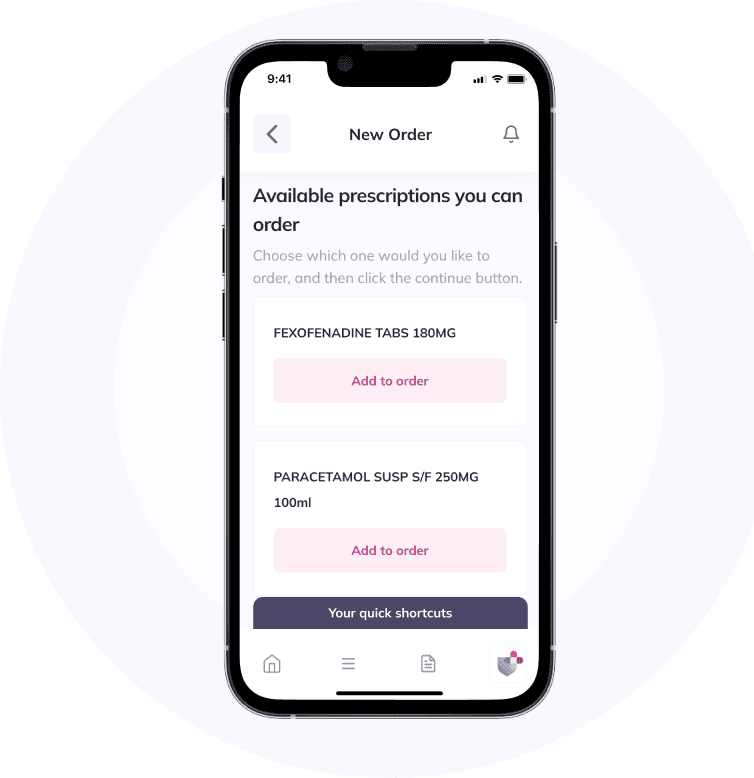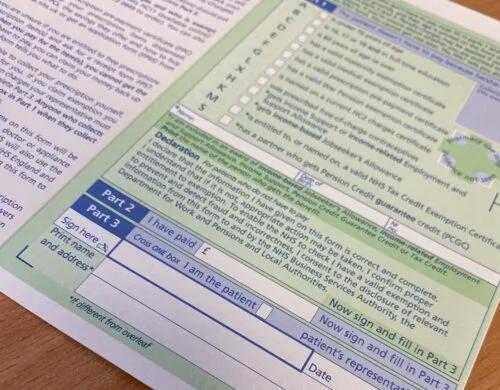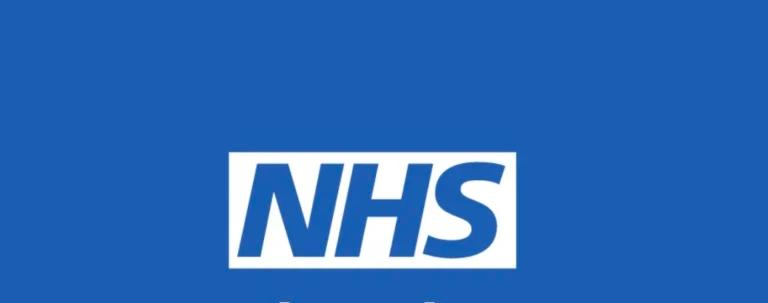In today’s digital age, accessing healthcare services and medications has become more convenient than ever. Traditional NHS pharmacies, also known as community pharmacies (local pharmacies) and online NHS pharmacies give patient’s choice of ways to obtain their medications and receive healthcare support. While both types of pharmacies play crucial roles in the healthcare system, there are distinct differences between them. This article will explore the characteristics of traditional NHS pharmacies and online NHS pharmacies, highlighting their unique features, benefits, and considerations for patients.
Traditional NHS Pharmacies: The Cornerstone of Primary Care
Traditional NHS pharmacies, often found on high streets or within retail outlets, have long been a familiar presence in communities across England. These community pharmacies serve as essential pillars of primary care, alongside general practice, optical services, and dentistry. While they are commonly associated with dispensing and retailing medicines, their role extends far beyond that. Community pharmacies provide a broad range of NHS services, making them easily accessible and offering valuable advice and support to patients.
Services Provided by Traditional NHS Pharmacies
Traditional NHS pharmacies offer a variety of services under the National Community Pharmacy Contractual Framework (CPCF). These services can be categorised into three main types:
- Essential Services: These services are mandatory and include activities such as dispensing medicines and medical appliances, advising patients on self-care, providing medicines support after hospital discharge, and disposing of unwanted or spare medicines
- Advanced Services: These services are optional and can be provided by community pharmacies that meet certain requirements. Examples of advanced services include flu vaccination, the New Medicine Service (which helps patients understand and make the best use of newly prescribed medicines), and the Community Pharmacist Consultation Service (which allows other parts of the health system to refer patients for urgent care needs and minor illness support)
- Enhanced Services: These services, which used to be commissioned by primary care trusts, are now primarily commissioned by NHS England or other public bodies. Examples of enhanced services include anticoagulation services, sexual health services, needle and syringe exchange services, and smoking cessation services
Ownership and Regulation of Traditional NHS Pharmacies
Traditional NHS pharmacies can be owned and operated by three different groups:
- Sole Traders: Individual pharmacists who own and operate community pharmacies
- Partnerships: Business partnerships consisting of two or more pharmacists who own and operate one or more community pharmacies
- Body Corporates: Registered companies that can own community pharmacies, but they must employ registered pharmacists to fulfil pharmacy responsibilities. A superintendent pharmacist is also required to oversee pharmacy activity across the entire business
To ensure patient safety and quality standards, traditional NHS pharmacies are regulated and monitored by various bodies. The Care Quality Commission (CQC) plays a crucial role in inspecting and rating community pharmacies, ensuring compliance with healthcare standards and best practices. Community pharmacies must also be accredited by the General Pharmaceutical Council (GPhC) and display the green registered pharmacy logo on their websites to signify their legitimacy and adherence to safety regulations. Additionally, the Medicines and Healthcare Products Regulatory Agency (MHRA) governs the safety, quality, and efficacy of medicines and medical devices in the UK.
Online NHS Pharmacies: The Digital Frontier of Healthcare
The rise of online pharmacies has transformed the way medicine is supplied and accessed by patients. NHS Online pharmacies provide a convenient and discreet platform for individuals to manage their healthcare needs, especially for conditions that may be considered embarrassing or sensitive. These digital pharmacies often offer prescribing services, enabling patients to have online doctor consultations and receive prescriptions that are then dispensed by a pharmacy.
However, the problem with the majority of online pharmacies is that they heavily focused on providing prescription services only. Pioneering online pharmacies are using newer technology to provide clinical services remotely. NowPatient offers NHS clinical services like the new NHS Pharmacy First and NHS New Medicine Service remotely.
NowPatient – NHS Online Pharmacy
Switch to NowPatient today and start enjoying a new way of managing your NHS prescriptions. It’s free to join and because we are directly integrated with the NHS and your GP, you will be able to immediately see your medications and place orders once you have created an account. With a range of added benefits, there has never been a better time to join.
NowPatient is an online pharmacy & telehealth service that is available in the US and UK. Our service is FREE and packed with useful features that can help you save money on the cost of your medications, access virtual treatments, and provide tools that can help improve your overall health. Get started today and benefit from medication reminders, private treatment plans, NHS online pharmacy, GP appointment booking, Rx savings card, Drug Coupons, US drug savings programs, health conditions information, genetic testing, home test kits, BMI Risks, Type 2 Diabetes Risks, pollen meter, air quality monitor, and lots more!
We are here to improve lives. Our service gives you access to smart features and resources that can help empower you to take control of your health and improve your health outcomes. All this, in one place, free of charge. We strive to bring a fresh perspective to managing health. NowPatient can be accessed by downloading the App or using your web browser. See how we are different
The Appeal of Online NHS Pharmacies
Online NHS pharmacies have gained popularity due to their convenience and accessibility. With the increasing use of digital technologies and the impact of the COVID-19 pandemic, patients are turning to online platforms for their health issues. Online pharmacies offer the following benefits:
- Convenience: Patients can order medications and access healthcare services from the comfort of their own homes, eliminating the need to visit a physical pharmacy
- Discretion: Online pharmacies provide a discreet option for individuals seeking treatment for sensitive conditions, as they can avoid face-to-face interactions
- Prescribing Services: Some online pharmacies offer prescriber services, allowing patients to consult with healthcare providers remotely and receive prescriptions for their medications
Ensuring Safety and Legitimacy: Regulatory Bodies
To ensure patient safety and protect against illegal practices, it is crucial to distinguish legitimate online NHS pharmacies from unauthorised sources. Patients should look for accreditation and registrations from the following regulatory bodies:
- CQC (Care Quality Commission) Regulation: The CQC regulates and inspects online pharmacies to ensure they meet the highest standards of compliance and quality. Patients should verify that an online pharmacy appears on the CQC register, which provides confidence in the pharmacy’s qualifications and adherence to clinical and regulatory standards
- GPhC (General Pharmaceutical Council) Approval: Online pharmacies operating in Great Britain must be accredited by the GPhC. Patients should look for the green registered pharmacy logo on online pharmacy websites, indicating that the pharmacy has met the requirements for a safe and genuine medication supply
- MHRA (Medicines and Healthcare Products Regulatory Agency) Registration: The MHRA governs the safety and regulation of medicines and medical devices in the UK. Patients can verify an online pharmacy’s legitimacy by checking for MHRA registration or appropriate accreditations
The Distinction: Community Pharmacy vs. Online Pharmacy
While traditional NHS pharmacies and online NHS pharmacies both provide important healthcare and pharmacy services, it is essential to understand their differences and consider which option suits individual needs best.
- Community Pharmacies: Traditional NHS pharmacies, also known as community pharmacies, are physical establishments where patients can access prescription medicines and other healthcare services in person. They have qualified healthcare professionals, such as pharmacists, available to provide face-to-face advice and support. Community pharmacies may also offer online services alongside their physical presence
- Online Pharmacies: Online NHS pharmacies, also referred to as internet pharmacies operate solely online through websites or apps. Patients can order NHS prescriptions online, and the pharmacy works in collaboration with GP practices through the NHS network to fulfil these orders. The Electronic prescription service (EPS) allows prescribers to send prescriptions electronically to a dispenser (such as a community pharmacy) without the need for a paper prescription. Online pharmacies provide digital platforms for patients to connect with healthcare professionals, access medication records, book appointments, and order repeat prescriptions
It is important to note that patients should exercise caution when using online pharmacies. Conducting thorough checks and ensuring the legitimacy and safety of the online pharmacy is crucial to protect against counterfeit products or potential risks to health.
Conclusion
Traditional NHS pharmacies and online NHS pharmacies each offer unique benefits and services to patients. Community pharmacies serve as readily accessible sources of healthcare advice and support, while online pharmacies provide convenience and discretion. However, over time and with technology rapidly evolving, the gap between online pharmacies and traditional pharmacies will be bridged. Pioneering providers like NowPatient are developing clinical service pathways connecting a bank of clinicians to patients and providing a secure clinical platform to provide clinical services remotely.
Patients should be aware of the regulatory bodies that ensure the safety and legitimacy of both types of pharmacies. Whether opting for a traditional community pharmacy or an online pharmacy, patients should prioritise their safety and quality of care. By understanding the differences between these two options, individuals can make informed decisions about accessing their medications and healthcare services in a way that best meets their needs.
Sources
Medical Disclaimer
NowPatient has taken all reasonable steps to ensure that all material is factually accurate, complete, and current. However, the knowledge and experience of a qualified healthcare professional should always be sought after instead of using the information on this page. Before taking any drug, you should always speak to your doctor or another qualified healthcare provider.
The information provided here about medications is subject to change and is not meant to include all uses, precautions, warnings, directions, drug interactions, allergic reactions, or negative effects. The absence of warnings or other information for a particular medication does not imply that the medication or medication combination is appropriate for all patients or for all possible purposes.








